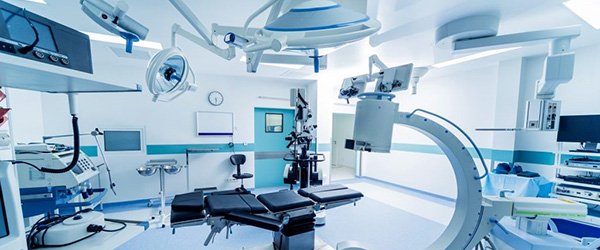Medical Electronics Industry PCB: Supplier Qualifications, Challenges

The medical electronics industry demands the highest levels of precision, reliability, and safety. Printed circuit boards (PCBs) are integral to the functionality of medical devices, as these boards serve as the backbone for numerous applications, from diagnostic equipment to life-sustaining therapies. To meet these rigid industry demands, PCB suppliers must adhere to stringent qualifications, navigate unique challenges, and follow rigorous testing procedures. This article delves into the qualifications required for suppliers of medical electronics PCBs, the challenges they face, and the testing protocols they must uphold.
Supplier Qualifications for Medical Electronics Industry PCBs
1. Compliance with Regulatory Standards
Medical electronics manufacturers must comply with various regulations, including FDA (U.S. Food and Drug Administration) standards, ISO 13485 (medical device quality management systems), and IEC 60601 (safety and performance of medical electrical equipment). A qualified PCB supplier should demonstrate familiarity with these standards and provide documentation proving adherence.
2. Quality Management Systems
A robust quality management system (QMS) is essential for PCB suppliers in the medical field. Compliance with ISO 9001 and ISO 13485 ensures that the supplier maintains quality in every stage of production, from design to manufacturing to delivery. Suppliers should have documented processes for managing change control, risk management, and traceability of components.
3. Experience and Specialization
Suppliers should possess significant experience in manufacturing PCBs for medical applications. Specialized knowledge about biocompatible materials, precision manufacturing techniques, and regulatory pathways is crucial. It is beneficial if the supplier has prior experience dealing with similar devices or applications.
4. Proven Track Record
A history of successful collaborations with reputable medical device manufacturers can indicate the supplier's reliability and expertise. References and case studies demonstrating successful project completions in the medical electronics sector are vital.
5. Technical Proficiency
Suppliers should have advanced capabilities in PCB design, prototyping, and manufacturing using modern technologies like automated assembly and advanced materials. Their ability to handle complex designs involving high-density interconnections and miniaturization is critical.
6. Maintenance of Traceability and Documentation
A robust system for tracking materials and components is essential, given the strict scrutiny associated with the medical industry. This includes maintaining detailed records of components, processes, and changes throughout the manufacturing life cycle.
Challenges in the Medical Electronics PCB Market
1. Regulatory Complexity
Navigating the various regulatory requirements can be daunting. Manufacturers must be thorough in their documentation and compliance efforts, which can introduce complexities in the supply chain and extend development timelines.
2. Demand for High Reliability
Medical devices often have critical functions, necessitating extremely reliable PCBs. Any failure could pose serious risks to patients, making reliability a paramount concern. This requires rigorous controls throughout the design and manufacturing processes.
3. Component Availability and Supply Chain Risk
The semiconductor shortage and component availability issues can significantly affect the medical electronics sector. Suppliers need to establish resilient supply chains and manage relationships with component manufacturers to mitigate risks.
4. Cost Management
Due to high compliance costs and the need for specialized materials and processes, managing costs while maintaining quality can pose a challenge. Suppliers need to balance these pressures while delivering competitively priced products.
5. Emerging Technologies
Rapid advancements in technology mean that suppliers must continually adapt and innovate. Keeping up with new materials, manufacturing techniques, and design tools is critical but can also be resource-intensive.
Conclusion
The integration of PCBs in the medical electronics industry underscores the importance of high-quality manufacturing, compliance with stringent regulations, and rigorous testing procedures. Suppliers must be qualified through a systematic approach to quality management, technical expertise, and a proven track record in the medical field. As the industry continues to evolve with new technologies and systems, understanding the challenges and adhering to thorough testing protocols will be critical in ensuring the reliability and safety of medical devices that enhance patient care and health outcomes.
 The Role of High-Frequency PCB
The Role of High-Frequency PCB
 Medical Electronics Industry P
Medical Electronics Industry P
